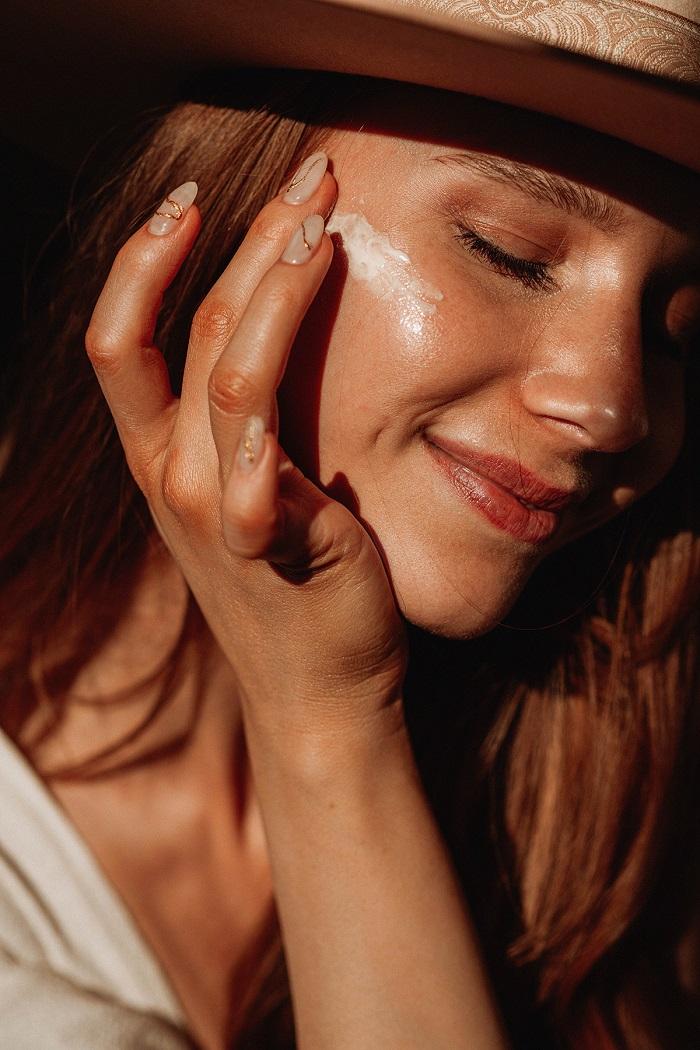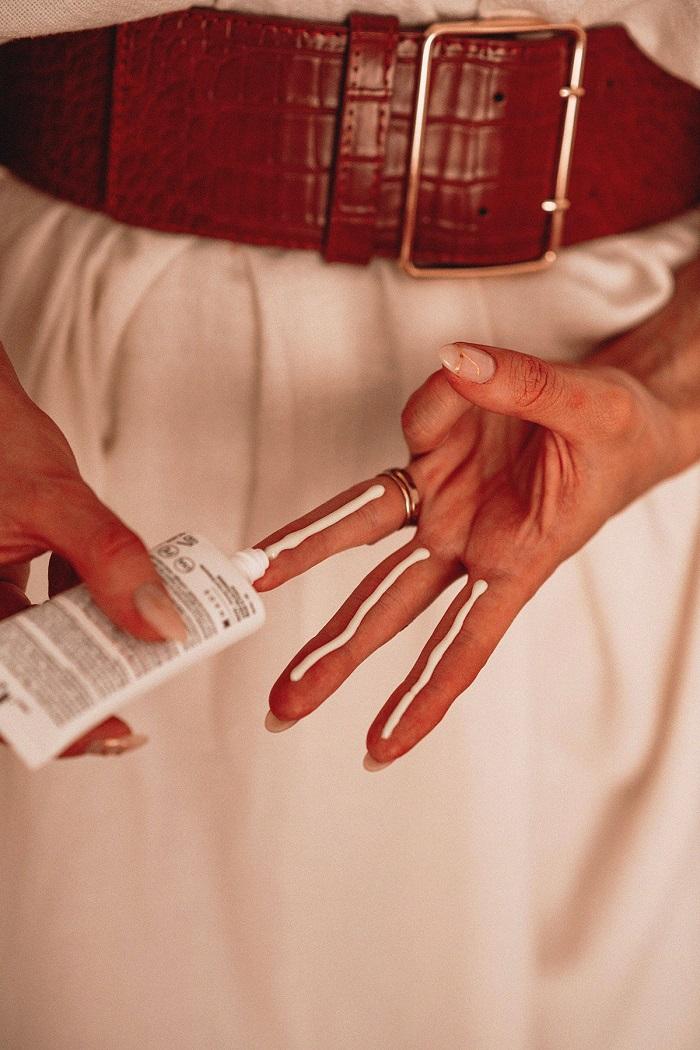We all know that sunscreen protects you from sunburn, but what does it have to do with your suntan? There are lots of things that aren’t talked about very often when it comes to sunscreen, so here are the answers to your sunscreen-related tanning questions!
How does suntanning work?
One of the first things you may be wondering is actually how you tan in the first place. While it’s something that many people strive to achieve by the end of their summer vacation, and others do their best to avoid, one thing most people have in common is that they don’t know exactly how the process works.
While this isn’t necessarily something you’d need to know when spending your days out in the summer heat, it is something that can be useful, and it can even help you take care of your skin, as you have a deeper understanding of it.

Essentially, the process isn’t too difficult, and it all starts with the Sun itself, as it emits some powerful rays, known as UVA and UVB, which penetrate the Earth’s atmosphere. Both types of UV ray are able to cause damage to your skin if it’s not protected by sunscreen, but they’re both responsible for different types of damage, as they have different wavelengths and therefore work in slightly different ways.
Once the UV rays come into contact with your skin, they penetrate the upper layers, whether you’re wearing sunscreen or not, and this is the point at which they can start to cause damage.
However, your body’s initial response to this invasion by the UV rays comes from the melanocytes, small structures which are found beneath the layers of the skin. These melanocytes have the job of producing melanin, a pigment that you may have heard of before, and it’s responsible for the colour of your skin, eyes and even hair.
Melanin, as well as its aesthetic purposes, has a special role in our skin, and it’s a natural SPF against the Sun. So, it’s produced as a result of UV rays penetrating the skin as a defence against any Sun damage, in an attempt to protect the skin from sunburn and other problems. As it builds up over time, after sun exposure, your skin develops a tan.
- SUPERIOR ENDURANCE VS. SWEAT & WATER — From family fun to hardcore competition, Banana Boat Sport Sunscreen provides strong sun protection that stays on so you can play on
- CLINICALLY PROVEN UVA/UVB PROTECTION — This SPF 50+ broad spectrum sunscreen spray protects skin from the sun's harmful UV rays
If you click Buy on Amazon and make a purchase, I'll earn a small commission at no additional cost to you.
Also read: Does Exfoliating Remove Suntan? (Chemical vs. Physical)
Does sunscreen help you tan faster?
So, we’ve established exactly how it is that your skin can develop a suntan, but the real question is how sunscreen affects this – or whether it even affects it at all. It can be good to know what to expect, so you can plan to see how you’ll be getting your holiday glow and ensure that you’re being safe whilst spending time in the Sun, at the same time!
In all honesty, your sunscreen won’t help you tan faster which may be either a positive or negative thing for some people, depending on your preferences, but the main thing to highlight is that the product won’t, in any way, accelerate your tan. Most of the time, your sunscreen won’t actually have much to do with your tan, but if anything, it will actually slow down the entire tanning process.
| Sunscreen Type | Effect on Tanning |
|---|---|
| Broad Spectrum | Provides protection against both UVA and UVB rays, reducing the risk of sunburn. |
| SPF 30 | Filters out approximately 97% of the UVB rays, allowing some level of tanning. |
| SPF 50 | Filters out approximately 98% of the UVB rays, offering a higher level of protection. |
| Mineral Sunscreen | Contains zinc oxide or titanium dioxide, reflecting and scattering UV rays. |
| Chemical Sunscreen | Absorbs UV rays and converts them into heat, reducing the risk of sunburn. |
This is all because of how sunscreens work in relation to the UV rays, and the way these slots into the entire tanning process, as we looked at earlier. Suntanning is caused by the penetration of UV ryas into your skin, and a sunscreen won’t disable tanning altogether, as not even the strongest of sunscreens have complete, 100% protection, though they can get quite close. This means that some of the UV rays will still trigger the melanin production and, being a line of defence, your body generally produces the same amount of melanin anyway, as any amount of UV can be alarming to the body.

However, if your sunscreen does offer a very high protection (an SPF 50 product, when applied properly, will filter out 98% of UV), you may find that it does slow down your tanning progress a little, but this is definitely not a bad thing. In fact, it’s a sign that your skin is being well-cared for, even in the Sun, which is kudos to you, and shouldn’t discourage you from wearing a sun protection product.
| Factor | Effect on Tanning |
|---|---|
| Sunscreen Application | Applying sunscreen helps prevent sunburn, which can hinder tanning. |
| SPF Level | Higher SPF levels provide more protection and may slow down tanning. |
| Skin Type | Some individuals naturally tan faster or slower than others. |
| Sun Exposure Duration | Longer exposure to the sun can lead to a deeper and faster tan. |
| Time of Day | Sun exposure during peak hours tends to intensify tanning. |
| Sunscreen Reapplication | Regularly reapplying sunscreen ensures continuous protection. |
| Skin Moisture and Hydration | Hydrated skin tends to tan more evenly and effectively. |
| UV Index | Higher UV index levels increase the intensity of UV radiation. |
| Sunscreen Ingredients | Certain ingredients may enhance or inhibit the tanning process. |
In truth, your results can also depend on factors such as the colour of your skin already, as it’s clear that some people are more prone to getting a bronzed suntan than others, and those with paler skin can often find themselves a little more red or pink than they were before. Fore people who are more susceptible to sunburn, they may find that wearing sunscreen can increase the speed at which they tan, as they don’t sunburn first, which is healthier for the skin, too.
Also read:
Sunscreen Lotion or Spray – Which One is Better?
7 Things A Sunscreen Does to Your Skin (Explained)
Final thoughts
No matter whether you bask in the Sun all day or prefer to catch your rays over the course of the day, whilst doing other activities to gradually build up your summer glow, one thing’s for sure: sunscreen is only there to keep you protected from skin damage, so it won’t increase your tanning at all. However, this shouldn’t stop you from wearing your sunscreen every day, as it’s much more important to take care of your skin than build your summer glow!


